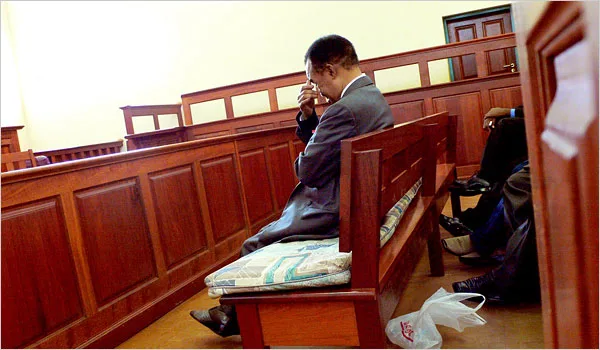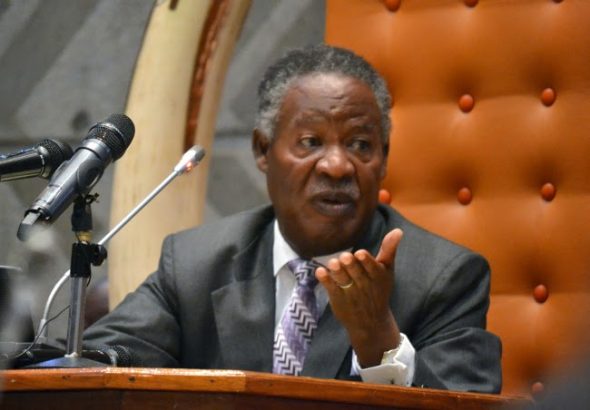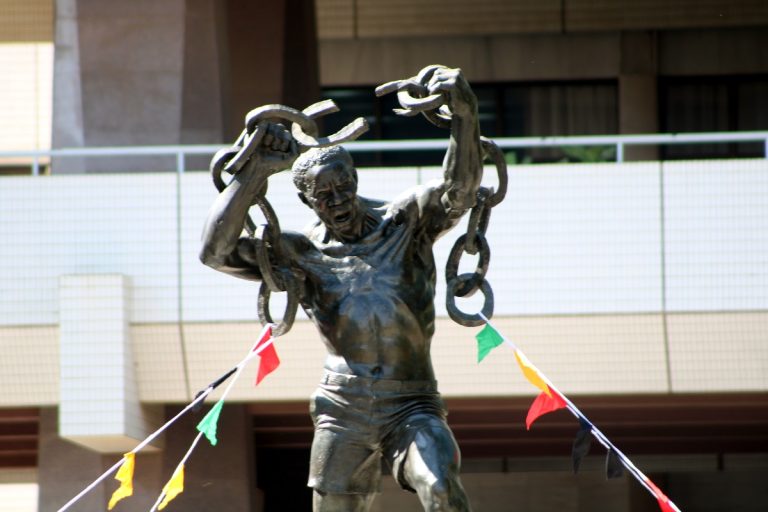
But as it was in the case of Barnabas vs Jesus, once hatred has been established, noone wants to hear any defence of the “guilty” one.
Lusaka, May 3 – Repetition makes a fact seem more true, regardless of whether it is or not. Understanding this effect can help you to avoid falling for propaganda.
“Repeat a lie often enough and it becomes the truth”, is a law of propaganda. Among psychologists this is known as the “illusion of truth” effect.
Our minds are prey to the illusion of truth effect because our instinct is to use short-cuts in judging how plausible something is. Often this works but it can be misleading.
In this narrative, I laour to explain how the general public is deliberately made to ignore the political rivalry variable to the corruption allegations equation in arriving at a guilty verdict in the court of public opinion.
In the case of Barnabas vs Jesus, the court of public opinion was not moved by the truth and that is how falsehood momentarily defeated the truth but surprisingly enough, not even people in a Christian Nation have taken time to learn from that judgment.
In Zambia, today, we rarely take time to question the validity of negative statements we come across involving public figures so it’s easier for politicians to use corruption allegations to get rid of their political opponents instead of engaging in competitive debates at the level of developmental ideas.
This article seeks to lay foundation to further articles I shall present on why Zambians must this time be smarter ahead of the 2026 general elections.
I have been gathering data to present our followers, who seek after the truth, with a very special report that should give us a gleam reality of politics of deception in which corruption is used, often times, involving a cartel of the press, planted whistle blowers, CSOs and prominent civil servants to ensure that whatever is presented is made to appear as credible as it could ever be.
Allow me to take you a little bit back to the issue of political persecution in the corruption case of former President Frederick Chiluba vs the People of Zambia.
What was believed to be a water tight case has since proved only to have been a malicious political fight initiated by enemies of Chiluba and supported by the late President Levy Mwanawasa.
President Levy Mwanawasa addressed Parliament and presented a series of allegations that former president Chiluba had committed offences against the state while in office.
Five days later, Parliament had hastily passed a resolution lifting Mr. Chiluba’s immunity against prosecution. There was jubilation in the country.
Chiluba’s enemies had done all they could to destroy his name in the court of public opinion dubbing his case the ‘Chiluba’s matrix of plunder’.
Parliament’s move was largely a response to rising protests over the government’s failure to act against the high-level corruption allegations levelled against the former Head of State.
Hundreds of demonstrators marched the streets of Lusaka, chanting and waving anti-Chiluba messages and swarmed the Parliament premises ahead of the special hearing.
“Chiluba is worse than HIV/AIDS”, one angry placard proclaimed. “Chiluba is a devil incarnate”, charged another.
Several others carried similar but strong and moving messages. One can just wonder what was going on in the mind of the late President at the time. But as it was in the case of Barnabas vs Jesus, once hatred has been established, noone wants to hear any defence of the guilty one.
Mwanawasa alleged that millions of dollars, including US$20.5m earmarked for arms purchases, were diverted from public coffers for the personal benefit of the former President, his family and associates. It was further alleged that over US $7m was diverted from the HIPC funds to a dubious arms deal with Katebe Katoto, alias Raphel Soliano, a Congolese rebel leader in the DRC.
With all these and many more, and that they were coming from the Head of State himself, Chiluba was guilty in the court of public opinion.
Surprisingly, when the matter went to court, all the prominent allegations especially the arms purchases and the diversion of HIPC funds proved to be unfounded and dropped off and Chiluba found himself facing a possibility of a jail term over a paltry US$500,000 from the multitude of millions that necessitated the removal of his immunity by Parliament. By the nation was coming to grips with the truth.
In 2007, the prosecution tried to save face by taking Chiluba’s case to a hired British judge, Peter Smith, who ordered Chiluba to pay back US$58 million to compensate for money he was suspected of stealing while he was in office. Chiluba just laughed it off.
The prosecution knew that the judgement, technically, could not even be registered in Zambia. Two years later, however, Lusaka Magistrate Jones Chinyama said the prosecution team had failed to prove the case against Chiluba.
“I find that the accused is not guilty on all counts,” Chinyama said
“Those who thought I am a thief should know now that that I am innocent. As a Christian Nation, we do not steal but the devil will accuse you of stealing,” Chiluba told a news conference after the verdict was handed down.
Chiluba’s innocence came after the political motives of the cartel against him had already been achieved.
So to avoid similar situations where political enemies can achieve their short term political objectives through the elusion of truth, President Edgar Lungu refused to take decisions based on the court of public opinion. So what changed in the case of the former Minister of Health, Dr. Chitalu Chilufya?
Join me here at Woodpecker’s Digest where we believe that democracy and development must be driven by Zambians. We need a radical change of mindset to develop Zambia.
©2022 Woodpecker’s Digest Inc.
Putting news into perspective








